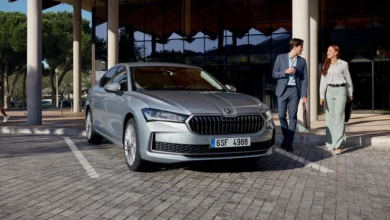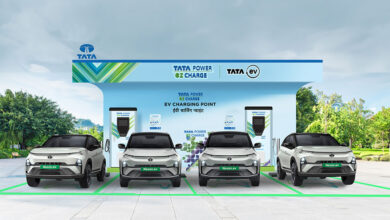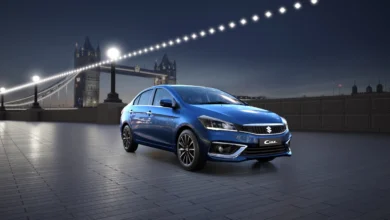WHO IS LEADING INDIA’S ELECTRIC VEHICLE MARKET? A COMPREHENSIVE ANALYSIS OF CURRENT AND FUTURE TRENDS
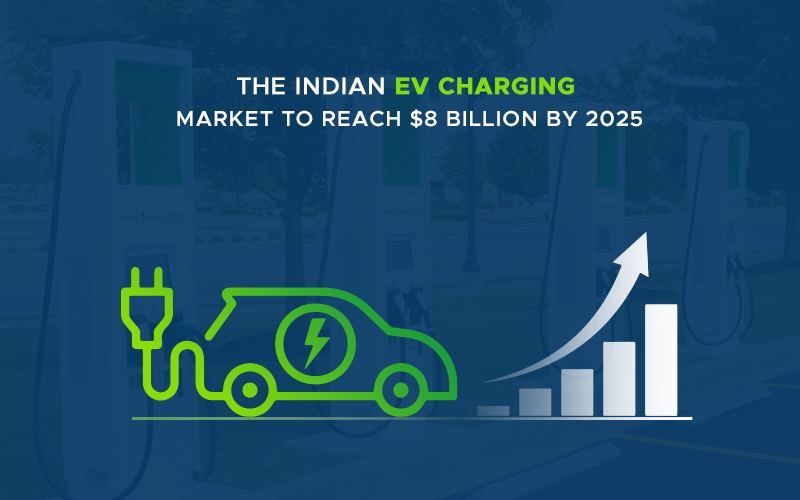 The electric vehicle (EV) market in India is rapidly evolving, driven by a combination of environmental concerns, government incentives, and advancements in technology. As the country shifts towards greener and more sustainable modes of transportation, a few companies have emerged as leaders in this sector. But which company is currently dominating the market, and which companies are poised to take the lead in the future?
The electric vehicle (EV) market in India is rapidly evolving, driven by a combination of environmental concerns, government incentives, and advancements in technology. As the country shifts towards greener and more sustainable modes of transportation, a few companies have emerged as leaders in this sector. But which company is currently dominating the market, and which companies are poised to take the lead in the future?
CURRENT MARKET LEADERS IN INDIA’S EV SECTOR
As of 2025, several companies are leading the charge in India’s EV market. Let’s dive into the key players that are shaping the future of electric mobility in the country.
1. TATA MOTORS
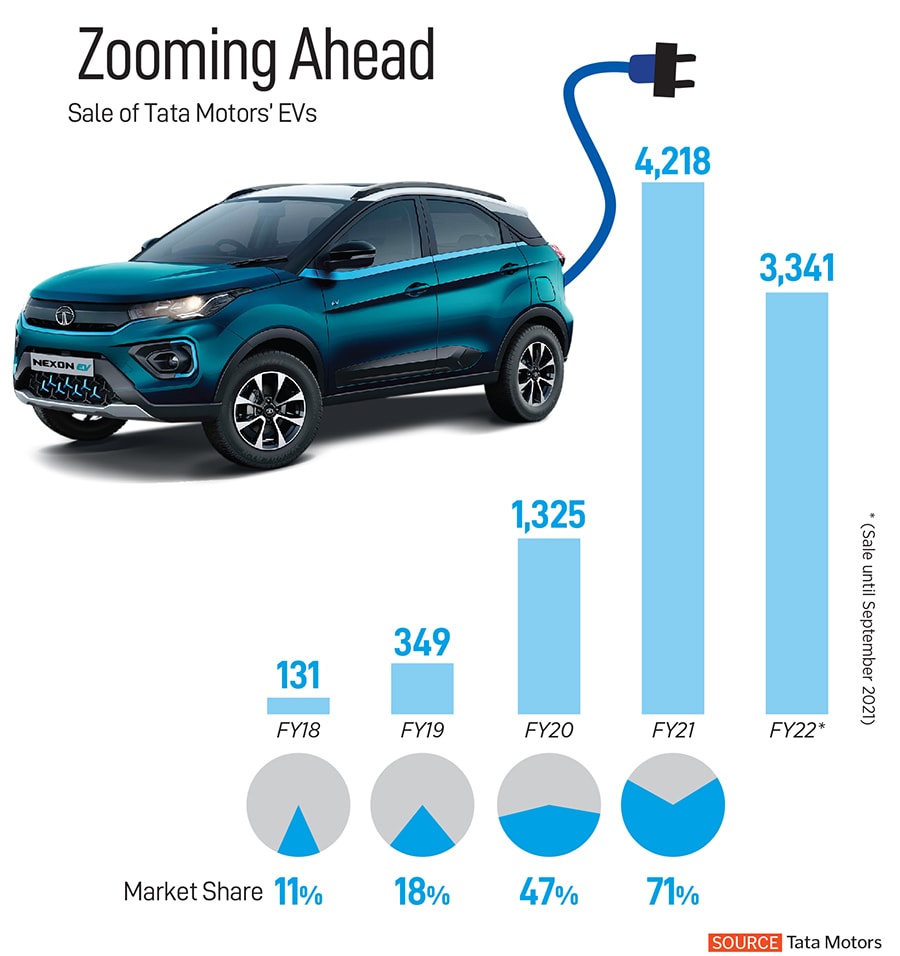 Tata Motors is one of the biggest players in the Indian EV market. The company launched its first electric car, the Tata Nexon EV, in 2020, which has become a game-changer. It quickly gained popularity due to its affordability, range, and compact design. Tata Motors holds a significant market share in the EV segment, benefiting from its strong manufacturing base and the brand’s reputation for reliability.
Tata Motors is one of the biggest players in the Indian EV market. The company launched its first electric car, the Tata Nexon EV, in 2020, which has become a game-changer. It quickly gained popularity due to its affordability, range, and compact design. Tata Motors holds a significant market share in the EV segment, benefiting from its strong manufacturing base and the brand’s reputation for reliability.
Tata’s efforts are not limited to passenger vehicles. The company has also made strides in electric buses, trucks, and commercial vehicles, which positions it as a dominant force in both B2C and B2B electric mobility solutions.
2. MAHINDRA ELECTRIC
 Mahindra Electric, part of the larger Mahindra Group, has been at the forefront of India’s electric mobility journey. The company has been selling electric cars since 2010 and currently offers a range of electric vehicles, including the Mahindra e2o Plus and the Mahindra XUV400 EV. The company’s focus on both passenger and commercial vehicles gives it a well-rounded presence in the market.
Mahindra Electric, part of the larger Mahindra Group, has been at the forefront of India’s electric mobility journey. The company has been selling electric cars since 2010 and currently offers a range of electric vehicles, including the Mahindra e2o Plus and the Mahindra XUV400 EV. The company’s focus on both passenger and commercial vehicles gives it a well-rounded presence in the market.
Recently Mahindra launched XEV9e and BE6 which are directly comparable to the Tesla’s cyber truck. It is a example of perfection in EV technology with safety and legitimate features.
Mahindra Electric is also investing heavily in creating charging infrastructure and battery technology, further cementing its position as a key player in India’s transition to electric mobility.
3. OLA ELECTRIC
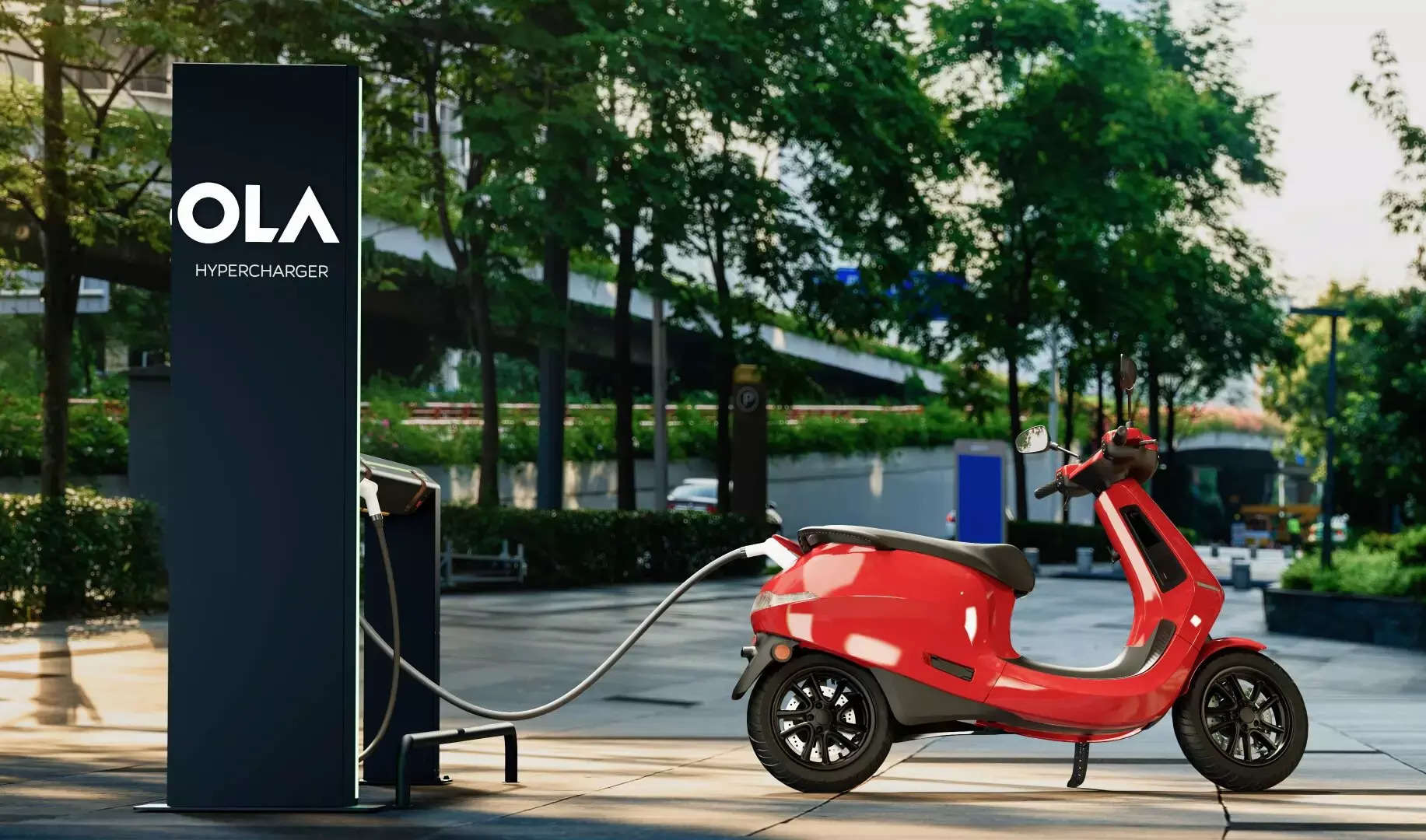
Ola Electric’s ambitious expansion plans, including the development of one of the world’s largest electric vehicle manufacturing facilities, position it as a major contender for future leadership in India’s EV sector.
4. ATHER ENERGY
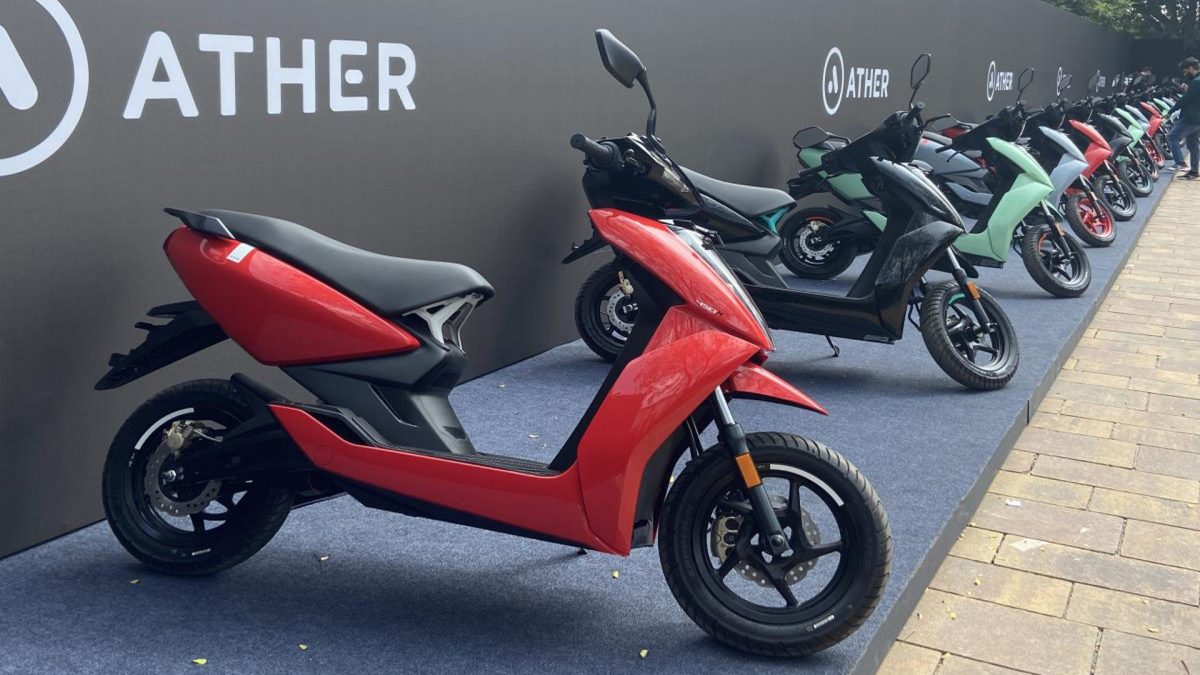 Ather Energy, a Bangalore-based startup, has been one of the most successful electric scooter companies in India. With its Ather 450X and Ather 450 Plus models, the company has built a strong brand known for performance, design, and advanced technology. Ather has been focusing on building a robust charging infrastructure and a connected ecosystem to enhance the customer experience.
Ather Energy, a Bangalore-based startup, has been one of the most successful electric scooter companies in India. With its Ather 450X and Ather 450 Plus models, the company has built a strong brand known for performance, design, and advanced technology. Ather has been focusing on building a robust charging infrastructure and a connected ecosystem to enhance the customer experience.
Ather is well-poised for growth, as electric scooters become increasingly popular in urban areas due to their affordability and low maintenance costs.
5. BYD INDIA
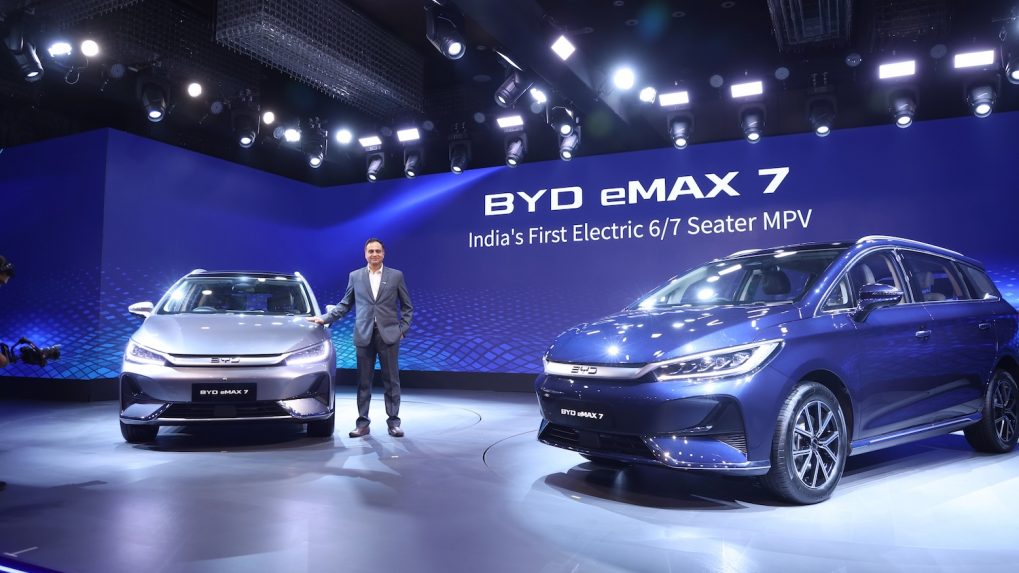 BYD India, a subsidiary of Chinese automotive giant BYD, is gaining ground in the electric vehicle market with its electric cars and buses. BYD launched its electric sedan, the BYD e6, and has plans to expand its EV offerings in India.
BYD India, a subsidiary of Chinese automotive giant BYD, is gaining ground in the electric vehicle market with its electric cars and buses. BYD launched its electric sedan, the BYD e6, and has plans to expand its EV offerings in India.
The company’s focus on innovation, global experience, and sustainability, alongside India’s growing demand for electric mobility, positions BYD as a key player in the future of India’s EV market.
FACTORS DRIVING GROWTH IN INDIA’S EV MARKET
Several factors are contributing to the rapid growth of electric vehicles in India:
GOVERNMENT SUPPORT: The Indian government has introduced several initiatives, such as the Faster Adoption and Manufacturing of Hybrid and Electric Vehicles (FAME) scheme, offering subsidies for EV purchases and charging infrastructure development.
INFRASTRUCTURE DEVELOPMENT: The growth of EV charging stations and battery-swapping stations across urban and rural areas is crucial for the widespread adoption of electric vehicles.
ENVIRONMENTAL CONCERNS: With rising pollution levels, both consumers and the government are more inclined to adopt electric vehicles to combat air pollution and reduce the carbon footprint.
TECHNOLOGICAL ADVANCEMENTS: EVs in India are becoming more affordable, thanks to innovations in battery technology and manufacturing. Additionally, advancements in charging technology make EV ownership more convenient.
THE FUTURE OF INDIA’S EV MARKET
As India’s EV market continues to grow, several emerging trends suggest that new players will rise to prominence.
1. ELECTRIC TWO-WHEELERS
) The electric two-wheeler market in India is expected to grow significantly, driven by increasing fuel costs, government incentives, and the convenience of electric scooters. Companies like Ola Electric, Ather Energy, and Bajaj Auto’s electric division are already making waves in this segment and will likely dominate it in the years to come.
The electric two-wheeler market in India is expected to grow significantly, driven by increasing fuel costs, government incentives, and the convenience of electric scooters. Companies like Ola Electric, Ather Energy, and Bajaj Auto’s electric division are already making waves in this segment and will likely dominate it in the years to come.
2. BATTERY TECHNOLOGY AND LOCAL MANUFACTURING

3. AUTONOMOUS AND CONNECTED EVS
 As the global automotive industry moves toward autonomous vehicles, India will likely see a rise in connected and semi-autonomous electric vehicles in the coming years. Companies that lead the development of connected EV technologies will gain a strong foothold in the market.
As the global automotive industry moves toward autonomous vehicles, India will likely see a rise in connected and semi-autonomous electric vehicles in the coming years. Companies that lead the development of connected EV technologies will gain a strong foothold in the market.
4. EVS IN COMMERCIAL FLEETS
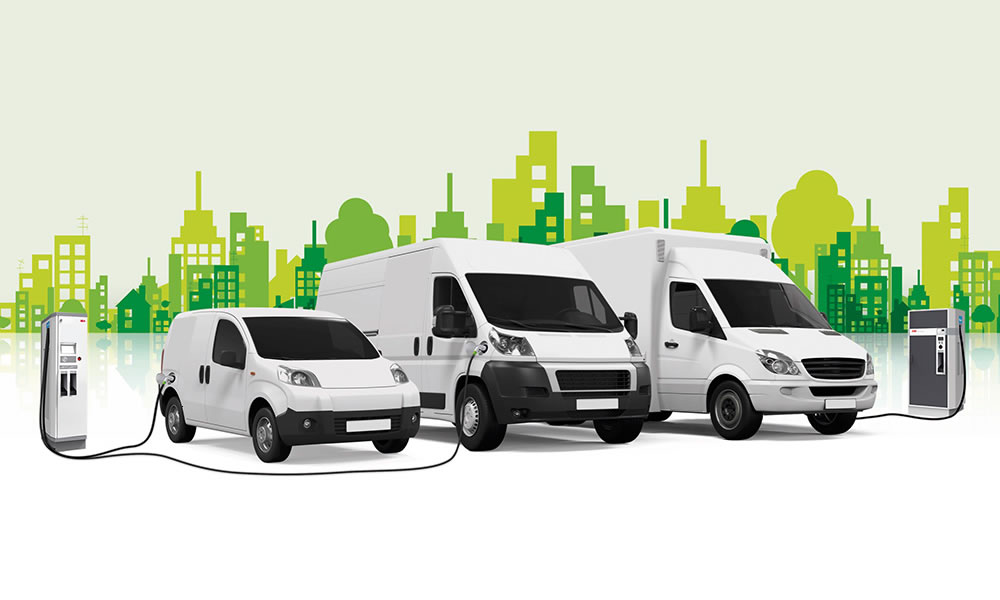 Electric vehicles in commercial fleets, including electric buses, trucks, and delivery vans, will become increasingly popular. This sector’s growth is essential for India’s transition to electric mobility, as it will contribute significantly to reducing carbon emissions.
Electric vehicles in commercial fleets, including electric buses, trucks, and delivery vans, will become increasingly popular. This sector’s growth is essential for India’s transition to electric mobility, as it will contribute significantly to reducing carbon emissions.
CONCLUSION: WHO WILL LEAD INDIA’S EV MARKET?
Currently, Tata Motors and Mahindra Electric are among the leaders in India’s EV market, thanks to their early entry, strong brand presence, and focus on affordability. However, companies like Ola Electric and Ather Energy are emerging as strong contenders, particularly in the electric two-wheeler segment.
In the future, we may see a shift towards Ola Electric and Ather Energy leading the charge in urban electric mobility. Additionally, global giants like *BYD India* are set to play an essential role, especially in electric buses and larger vehicles.
As the market matures, technology, infrastructure, and government policy will be key determinants of success. Whichever company can innovate in battery technology, charging infrastructure, and product offerings will be best positioned to lead India’s electric vehicle revolution. With the increasing focus on sustainability and green technologies, the future of India’s EV market looks extremely promising, with several players ready to dominate the space in the years to come.
THANK YOU
Regards
Team Autosports India

